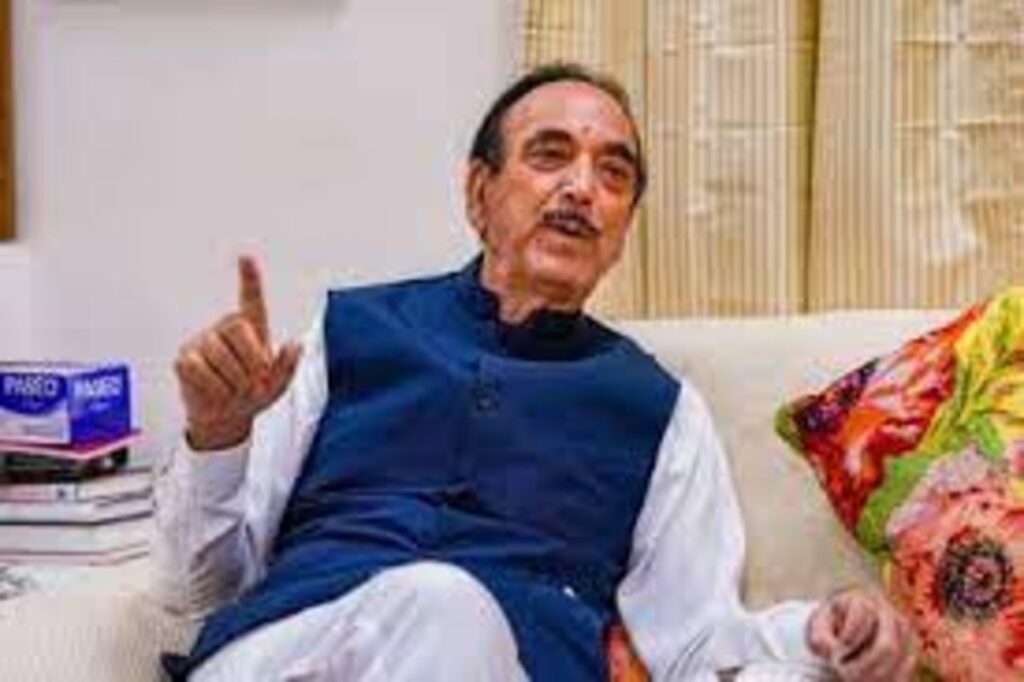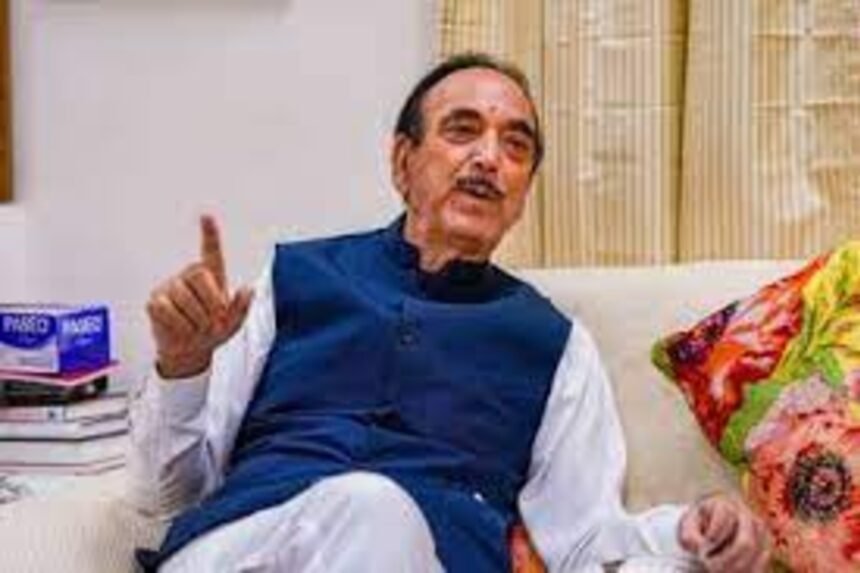August 18, 2023
Introduction
In a recent address to a gathering in Jammu and Kashmir’s Doda district, former Jammu and Kashmir chief minister and leader of the Democratic Progressive Azad Party (DPAP), Ghulam Nabi Azad, has ignited a controversy with his remarks on the historical context of religions in India. Azad’s comments about the origins of religions, particularly Hinduism and Islam, have garnered both support and criticism from various quarters.

During his speech, Azad suggested that the majority of Indian Muslims had converted from Hinduism and that no one had “come from outside or inside.” He argued that Hinduism predates Islam by a significant margin and stated, “All other Muslims converted from Hinduism in India. An example of this can be found in Kashmir. Who were the Muslims in Kashmir 600 years ago? All were Kashmiri Pandits. They converted to Islam. All are born into this religion.”
Azad also emphasized that various communities, including Hindus and Muslims, have made India their home and have contributed to the nation’s development. He drew parallels between Hindu cremation practices and Muslim burials, suggesting that both communities ultimately become part of the nation’s soil.
Remarks evoke mixed reaction
The remarks by Azad have evoked mixed reactions from political leaders across the spectrum. Senior BJP leader Kavinder Gupta supported Azad’s views, agreeing that Islam’s inception in India occurred relatively recently. Gupta also claimed that the historical record of Kashmir indicated that the region was predominantly Hindu around 600 years ago.
However, critics of Azad’s statements were quick to respond. Peoples Democratic Party (PDP) president Mehbooba Mufti, for instance, took a dig at Azad, suggesting that he should go even further back in history to find “some apes there in the ancestors.” Rashtriya Janata Dal (RJD) leader and Rajya Sabha MP Manoj Jha advocated for prioritizing humanity over religious, national, or civilizational considerations.
Ghulam Nabi Azad, a seasoned politician with a career spanning nearly five decades, left the Congress party and established the Democratic Progressive Azad Party on September 26, 2022. Since his departure from the Congress, Azad has been vocal in his criticism of the party’s policies and direction.
The remarks by Azad have rekindled discussions on the historical interplay between religions in India and the nation’s diverse cultural heritage. While some have lauded his efforts to highlight India’s inclusivity, others have raised concerns about the potential implications of his observations.
Conclusion
As this debate continues to unfold, it remains to be seen how Ghulam Nabi Azad’s comments will impact the broader discourse on religion, history, and identity in India.






